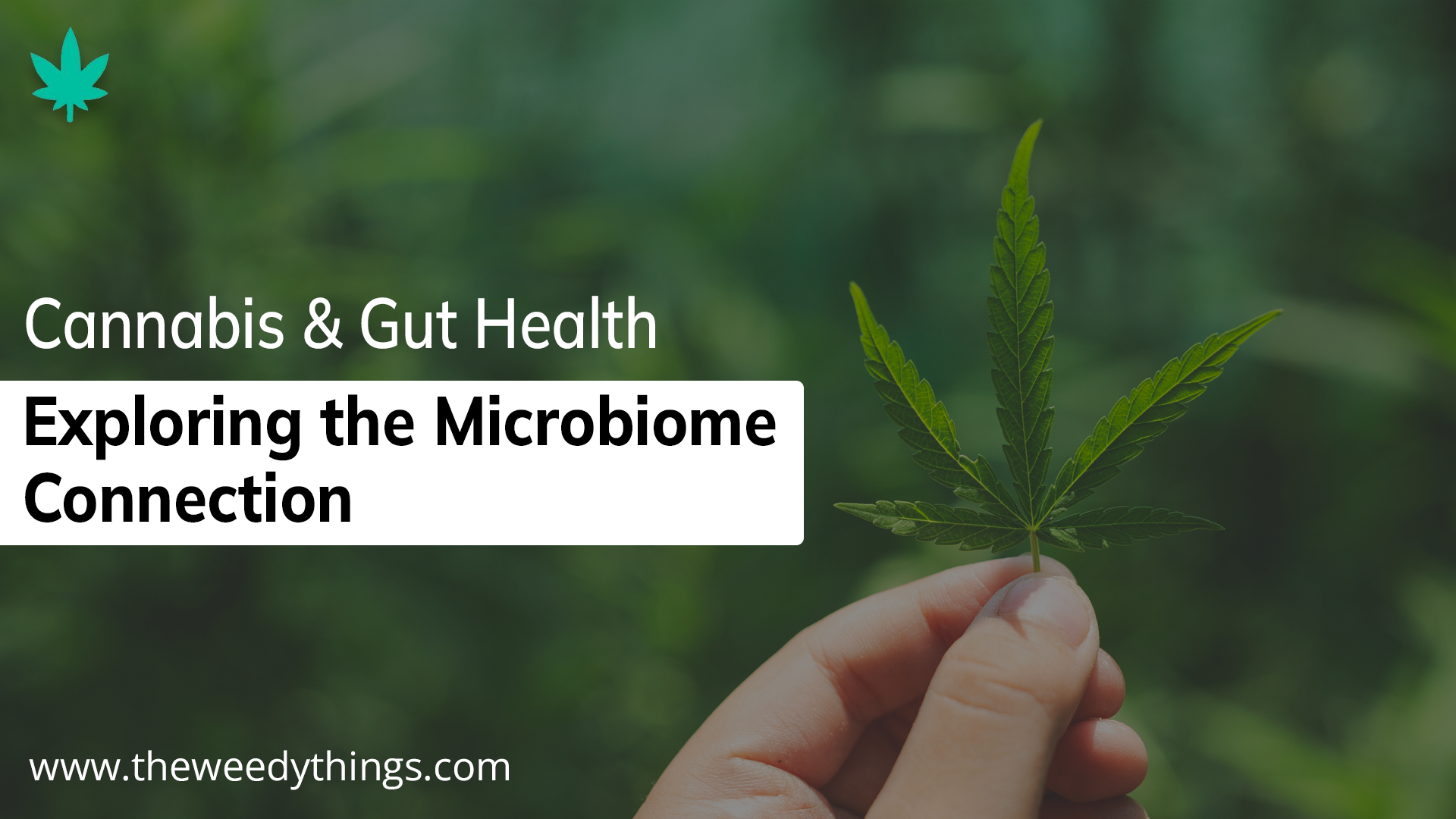In recent years, both cannabis and gut health have taken center stage in health and wellness discussions. The gut microbiome—an ecosystem of trillions of microorganisms—plays a critical role in digestion, immunity, mood, and even brain health. But what if cannabis could influence this complex system? Emerging research is shedding light on how cannabinoids like THC and CBD may interact with the gut microbiome, potentially leading to therapeutic benefits or unintended consequences.
Let’s dive deep into the fascinating connection between cannabis and gut health and what science says about this intricate relationship.
Understanding the Gut Microbiome
The gut microbiome refers to the community of bacteria, viruses, fungi, and other microbes that live in your digestive tract, especially the intestines. These microbes are essential for:
- Digesting food
- Producing vitamins (like B12 and K)
- Regulating the immune system
- Protecting against harmful pathogens
- Communicating with the brain via the gut-brain axis
A balanced microbiome is linked to overall health, while an imbalanced one (called dysbiosis) has been associated with conditions such as:
- IBS (Irritable Bowel Syndrome)
- Crohn’s disease
- Obesity
- Depression and anxiety
- Autoimmune diseases
The Endocannabinoid System (ECS) and the Gut
The Endocannabinoid System (ECS) is a biological system present in all humans and animals. It plays a role in regulating homeostasis, including appetite, inflammation, mood, and gut function.
Key ECS components include:
- CB1 receptors: Found primarily in the brain and nervous system.
- CB2 receptors: Found mostly in immune cells and the gastrointestinal tract.
Cannabinoids from the cannabis plant—especially THC (tetrahydrocannabinol) and CBD (cannabidiol)—can interact with these receptors and influence gut activity.
How Cannabis May Affect the Gut Microbiome
Recent studies suggest several ways in which cannabis might interact with gut health:
1. Modulating Inflammation
Cannabinoids, especially CBD, are known to have anti-inflammatory effects. In gut disorders like Crohn’s disease and ulcerative colitis, cannabis may help reduce inflammation by modulating immune responses.
2. Influencing Microbial Diversity
A 2019 study found that cannabis users had different gut microbiome compositions than non-users. Some beneficial bacteria increased, which could potentially aid digestion and immunity.
3. Improving Gut Motility
Cannabis has been used traditionally to treat nausea and vomiting. It may help regulate bowel movements in conditions like IBS, where motility is often impaired.
4. Reducing Gut Permeability (Leaky Gut)
Chronic stress and inflammation can lead to increased intestinal permeability. Cannabinoids might strengthen the gut lining, preventing toxins and bacteria from leaking into the bloodstream.
5. Appetite and Digestion
Cannabis can stimulate appetite (“the munchies”) and influence digestive enzyme production, which may indirectly support nutrient absorption and microbiome balance.
The Gut-Brain-Cannabis Connection
The gut-brain axis is a two-way communication system between the brain and the gut, often mediated by the microbiome. Since both the ECS and microbiome influence mood, sleep, and cognition, cannabis might offer holistic benefits—especially for people with both digestive and mental health issues like IBS with anxiety or depression linked to gut inflammation.
Potential Risks and Considerations
- Overuse of cannabis may disrupt the microbiome in some individuals.
- Smoking cannabis can introduce toxins that indirectly affect gut health.
- Dosage and strain matter—a product rich in THC might have different effects than one with high CBD.
Always consult a healthcare professional before using cannabis for medical purposes, especially if you have pre-existing gut issues.
Final Thoughts
Cannabis is emerging as a powerful player in the world of gut health and microbiome science. While it shows promise for managing digestive disorders and restoring microbial balance, more research is needed to fully understand its long-term effects. Used responsibly and under medical guidance, cannabis could be a natural ally for your gut and overall well-being.
Frequently Asked Questions
Cannabis is not a cure, but it can provide symptom relief. It helps reduce inflammation, pain, and nausea. Many patients with Crohn’s or IBS report better quality of life when using cannabis under medical supervision. However, long-term clinical studies are still ongoing.
Yes, studies show that cannabis can influence the diversity and composition of gut bacteria. It may increase beneficial bacteria that support immunity and digestion, but more research is needed to understand long-term effects.
While cannabis may help with digestion, smoking it can introduce harmful substances into the body, potentially impacting the immune system and gut lining. Edibles, tinctures, or capsules may be safer alternatives for gut-focused benefits.
CBD has anti-inflammatory and antioxidant properties. It interacts with the ECS to reduce gut inflammation, improve motility, and protect the gut lining. It’s especially helpful in conditions like IBD, IBS, and leaky gut syndrome.
Yes, in some people, high doses of cannabis may cause nausea, diarrhea, or abdominal discomfort—especially with improper strains or unregulated products. Start with a low dose and always monitor your body’s response.




